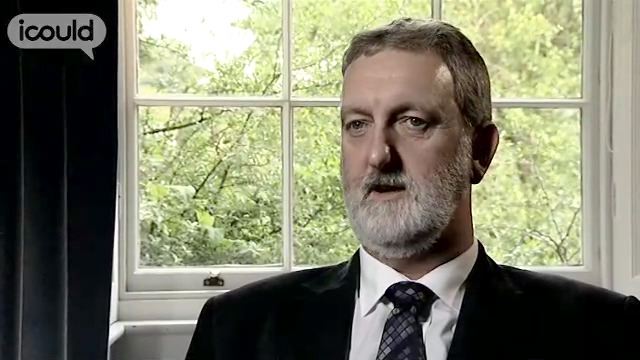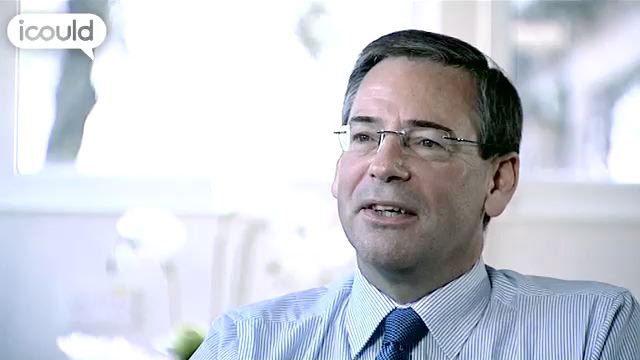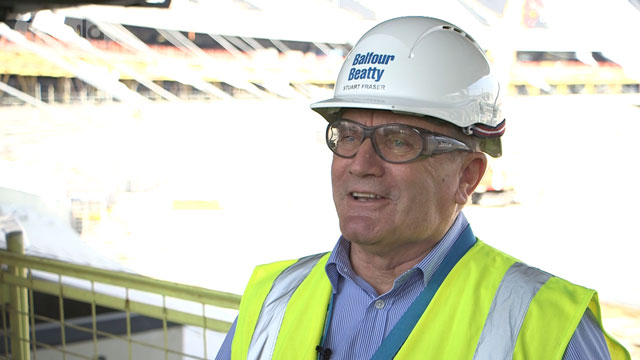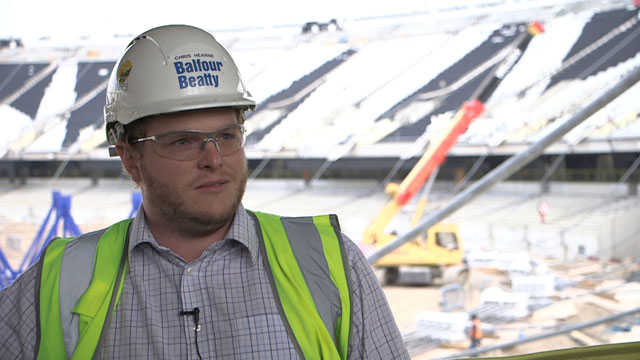National Manager
Aggregate Industries
Mick Herbert
00:00:01 My name’s Mick Herbert, I’m the National Technical Manager for building materials in Aggregate Industries. We look after 25 factories in the UK, and also 13 licensees across Europe and Canada. Anything you can actually think physically that you might actually make of concrete, we manufacture it. There’s never a boring moment, in fact it’s probably the opposite. There’s almost too much to do, too many things. I would like a lot less pressure, a lot less things to do, but it wouldn’t be as interesting if that wasn’t the case.
00:00:30 I can’t imagine anybody sits there and says I want to go into the pre-cast concrete industry. When you’re at school it’s the last thing I’m sure that anybody would ever think about. When I was at school I wanted to travel, I wanted to be in something technical – engineering was my first thought. Which is want I went to do. I went – I joined the Royal Fleet Auxiliary and trained with them. The decision not to do A-Levels was quite a difficult decision at the time. Pressure, probably from parents and from the school. My parents at the time were concerned I was making maybe a mistake in not continuing A-Levels, and maybe doing something more traditional, but I think at the time they decided the decision had to be mine.
00:01:17 The Royal Fleet Auxiliary is a department within the Ministry of Defence. They operate the ships which supply the Navy and the Army. As part of the Cadetship I did, to be an Officer, we had to spend three years at college and a year at sea, to complete a four year training course. I got to travel the world, I got an education – I was actually paid to go to college for three years – and doing a job I actually really enjoyed as well, the engineering side was very very good. The lifestyle is absolutely fantastic. Lots of parties in port, absolutely great, there’s just – there was literally almost no downsides at all.
00:01:57 I was with the RFA about seven years. I got married, which wasn’t something I felt I could continue to travel and stay away from home for long periods of time. There was also the Falklands conflict as well, which was actually my last trip. Which again my wife wasn’t too happy about. So all in all, the two things together meant that I decided to leave.
00:02:21 Going down to the Falklands was I think a broadening experience really. It probably ages you by about five years, very difficult to explain to people who’ve not been through it. It’s probably some of the most exciting times of your life, but also maybe some of the times – when you’re going through it you probably wouldn’t want to be there. Quite a life-changing experience really.
00:02:45 Now suddenly I’d been through the Falklands, I’d left my job, and I had to find something else, and other than being involved in engineering I didn’t really have any clear – clear view of what I wanted to do. I just looked around the papers for a job in engineering, and ended up at this location. When I came here, and certainly even after I’d been here for a year, I’d no idea – I couldn’t imagine I would be still here 26 – 27 years later. I wasn’t really looking that far forward, I was enjoying the working I was doing, but not really thinking of any particular career path.
00:03:21 Possibly as you get closer and closer to retirement that you think, you know, no I’m not ready to retire, I want to go and do something different. I think it becomes a reality that we do all age, we do all get older, and you want to make sure that you’ve lived a full life and do what – and see as much as you can.
00:03:40 If I could chose what my job would be, it would be a travel writer I think. Being able to travel and write about it sounds really good. Travel with a purpose.
00:03:53 ENDS
Mick Herbert is National Technical Manager at Aggregate Industries. He is involved with 38 factories in the UK and overseas. He started his career in the Royal Fleet Auxilliary, and served in the Falklands conflict. He found a niche at Aggregate when he wanted to settle down and has worked for the company ever since.
More information about Production managers and directors in construction
The UK average salary is £29,813
There are 37.5 hours in the average working week
The UK workforce is 47% female and 53% male
Future employment
- Liaises with other managers to plan overall production activity and construction activities, sets quality standards and estimates timescales and costs;
- Receives invitations to tender, arranges for estimates and liaises with client, architect and engineers for the preparation of contracts;
- Plans, directs and co-ordinates the construction and maintenance of civil and structural engineering works, including demolition, open-cast mining works and pipeline and piling;
- Receives reports upon work in progress to ensure that materials and construction methods meet with specifications and statutory requirements and that there are no deviations from agreed plans.









